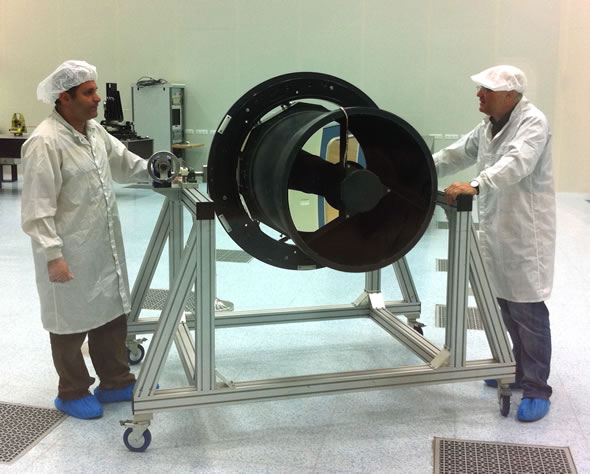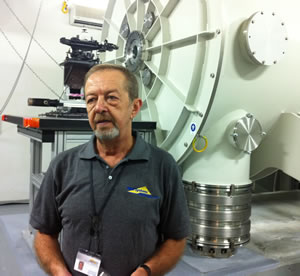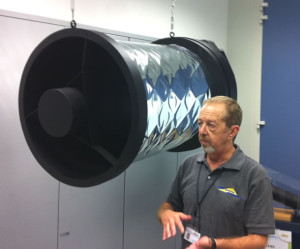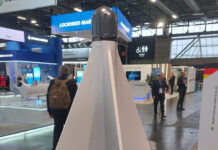
October 5, 2011: Elbit Systems opened today its newly established national space laboratory to the local and international press. For the first time the company unveiled the ‘space simulator’, used to test satellite electro-optical payloads in space-like conditions.


Located at the company’s ElOp facility in Rehovot, the ‘Daniel’ space lab is providing all the necessary infrastructure for the development of space cameras. According to Ilan Porat, head of space systems at ElOp, unique test equipment was designed, developed and produced by ElOp to facilitate the new lab, at an investment of US$15 million. This equipment includes a large vacuum chamber, providing simulated space environment, and isolation from seismic and acoustic vibrations and noise, required for the testing of space cameras.
The large test cell sits on a 250 ton concrete block, ‘floating’ on nitrogen filled cylinders, isolating vibrations that would compromise the sensitive measurements of the cameras. The test cell comprises a collimator simulating the 600 kilometer distance for the camera optics. Through the test the equipment is maintained in vacuum and exposed to extreme temperature gradients simulating the harsh operational environment the equipment is exposed to in space.

The Daniel center is currently working on several new payloads, including the Jupiter multi-spectral payload, designed for the next generation Ofeq satellite. With a focal plane of 70 cm, (compared to 50 cm of the Neptune) the larger, more powerful payload detector and associated optics will provide images with a resolution of 50 cm, from an altitude of 600 km. To meet the high resolution while maintaining efficient area coverage, ElOp has developed a new, high density 30,000 element Time Delay Integration (TDI) detector, offering three-times the density over current detectors used in the neptune payloads used in current Ofeq and Eros satellites and twice the density over the panchromatic-multi-spectral MSC cameras used on the Korean Kompsat-2 family satellites. Compressed into a tube just over 1.5 meter long, Jupiter’s optics provide a 16 meter focal length.
ElOp is also working on Multi-Spectral Camera (MSC) payloads destined for foreign satellites and VeNUS, a super-spectral payload developed for the French Space Agency, the VeNUS camera is currently in the integration phase, and is scheduled for delivery within a year.

















